Booklist
Write Your Story Programme Books
| Cover | Book Title | Author | Tags |
|---|---|---|---|
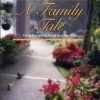 |
A Family tale
From Europe to Israel and Australia. |
Abish, Yona
|
|
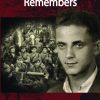 |
Chaim Ajzen Remembers
The powerful and moving autobiographical account of a man who found a way to fight back. |
Ajzen, Chaim
|
|
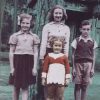 |
Hania's war
As gripping as a thriller and beautifully written. |
Ajzner, Hania
|
|
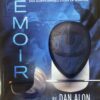 |
Munich Memoir
"MUNICH MEMOIR is an essential denouement to one of the most shocking events of the 20th century."
— Eric Dezenhall, author of The Devil Himself
Dan Alon is a world champion fencer and a surviving member of the 1972 Israeli Olympic team. He watched in horror as 11 of his friends and teammates were killed at the Munich Games by the terrorist group Black September. This event has been at the heart of a life’s journey and a meditation on family, legacy, and hope.
Though the Munich Massacre has been well-documented and dramatized in films such as Munich and One Day in September, this book is Alon's personal account of that day, its effect on his life and the lives of other survivors, and his 35-year search for understanding and peace.
Carla Stockton is a writer, editor, producer, and teacher in New York City. She has authored magazine articles, penned two screenplays, and written for several blogs. She has also co-written and co-produced a personal collection of screenplays and short films. |
Alon, Dan
|
|
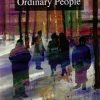 |
Memories of ordinary people
In this memoir Kitia tells her own survival story, and draws unforgettable portraits of forgotten individuals, both from her life prior to the war and several concentration camps. |
Altman, Kitia
|
|
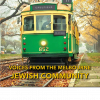 |
Voices from the Melbourne Jewish Community
The seventh anthology and 138th title in the Write Your Story series. |
Anthology - Makor Publishing
|
|
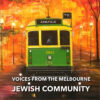 |
Voices from the Melbourne Jewish Community 2021
The 2021 Write Your Story Anthology. |
Anthology - Makor Publishing
|
|
 |
Voices from the Melbourne Jewish Community 2021 - Extra Contributor Copy
The 2021 Write Your Story Anthology. |
Anthology - Makor Publishing
|
|
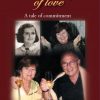 |
The red carpet of love
A tale of commitment |
Antman, Fred
|
|
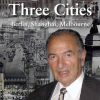 |
A Tale of three cities
Berlin, Shanghai, Melbourne. |
Antman, Fred
|
|
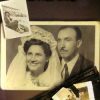 |
Recurring dreams
The story of Lenke's life : surviving the Nazi occupation of Hungary, migration to Australia and a touching love story. |
Arnstein, Lenke
|
|
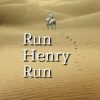 |
Run Henry run
Chemist, Legionnaire, Scout. |
Barclay, Henry
|
|
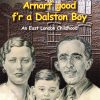 |
Arnarf good f’r a Dalston Boy : An East End London Childhood
This is the story of Mel Barnett's childhood in London during WW2. Mel’s is a sunny story, told lightly and easily and filled with particular nostalgia for the music of the times. |
Barnett, Mel
|
|
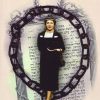 |
Full circle : the story of a chained woman
Abandoned by her husband, Doreen is considered Agunah, a 'chained' woman who can not remarry according to the Jewish Rabbinical court. |
Beckwith, Doreen
|
|
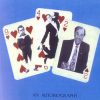 |
A Full house
An autobiography of Sydney A.B. Benjamin, a book is full of fascinating anecdotes from his facinating and colourful life. |
Benjamin, Sydney A.B
|
|
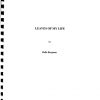 |
Bergman, Bella
|
||
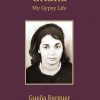 |
Gitana
My gypsy life. |
Berguer, Gueña
|
|
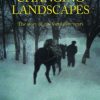 |
Changing landscapes
The story of my formative years. |
Birner, John
|
|
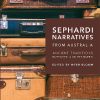 |
Sephardi narratives from Australia
Ancient traditions ruptured and reshaped |
Bloom, Myer
|
|
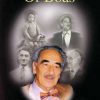 |
The Five books of Boas : an autobiography
An informative and entertaining autobiography of Bernard A. Boas, OAM. |
Boas, Bernard A., OAM
|
|
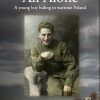 |
All alone
A young boy hiding in wartime Poland. |
Borenstein, Henry
|
|
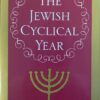 |
The Jewish Cyclical Year
The Jewish Cyclical Year by Dvorah-Leah Brand is a volume that belongs in every Jewish household. Step by step, Ms. Brand takes readers through the Jewish cyclical year, tracing the sources and inspirations for the holy days, festivals, fasts, and commemorative days.
If you or your children have ever questioned the whys and wherefores of Judaism's rich traditions, you are likely to find the answers within these pages. As mysterious as some customs may seem to modern individuals, a search through antiquity often reveals a plausible origin.
Ms. Brand also delves into the significance of the Holy Scriptures, illustrating how each one is crucial to Judaism as a whole. Still have questions? The helpful bibliography at the end serves as a valuable resource for further exploration.
An extremely useful work, The Jewish Cyclical Year offers enlightening and engaging reading for anyone interested in understanding the richness of Jewish tradition. |
Brand, Dvorah-Leah
|
|
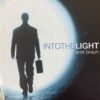 |
Into The Light
INTO THE LIGHT
Within these pages, Emil Braun recounts his life of happiness and fulfillment shaped from dark and desperate beginnings. Although struck by Motor Neurone Disease early in his retirement, Emil remains strong and positive and his memoirs talk, not of a cruel fate, but rather of how he has gained from his illness and what he has learnt. |
Braun, Emil
|
|
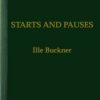 |
Starts and pauses
Ille's fascinating life offer us a unique look at Berlin in the 1930s, as well as her life in Johannesburg and Melbourne. |
Buckner, Ille
|
|
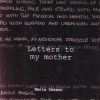 |
Letters to my mother
A memoir, telling the story of Maria Censor's hardships, the loss of her family and her work with the Polish underground in a deeply felt account of her life up to the end of the war. |
Censor, Maria
|
|
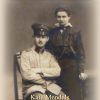 |
Noble is man
Kate Mendels & Leopold Herzberg, edited by Ursula Cher. |
Cher, Ursula (editor), Mendels, Kate & Herzberg, Leopold
|
|
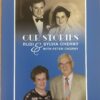 |
Our Stories
Peter Cherny watched as both his parents, Rudi and Sylvia (née Mahler), wrote their life stories in their later years. His mother's history, Sylvia's Story, was published by Makor in 2004. His father's story was still a manuscript at that time.
Peter set to work to bring them both to life, adding details and more photographs. The result is a comprehensive family history.
The Chernys came from Germany, the Mahlers from Austria. Both were well-established families. When the Nazis came, Sylvia's father suicided in despair. His children were rescued by a Kindertransport and educated in France, before making their way to Melbourne to be reunited with their mother, who had remarried.
Rudi Cherny formed a partnership with his friend, John Altmann, and sold the famous Australian gemstone, opal, all around the world, including special pieces for many crowned heads. The story of how he grew up in Germany and established Altmann & Cherny as an exclusive business that continues to this day is captivating. |
Cherny, Rudi & Sylvia
|
|
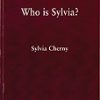 |
Who is Sylvia?
After the death of their father, Sylvia and her brother were sheltered from the Nazis by a nanny, were part of the Kindertransport to France and eventually managed to reunite with their mother in Australia. |
Cherny, Sylvia
|
|
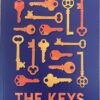 |
The Keys To The Many Doors Of My Life
Born in Cape Town, South Africa, to parents of German origin, Barbara Cohen's story is full of life, memorable characters, and such a love of nature that the reader longs to experience the African storms she misses to this day.
The arrival of her sister, when Barbara was eight years old, triggered a divorce, and her mother moved out with the new baby. Her father went on to marry and divorce again, while her mother collected four husbands during her long life. She was not the mothering kind.
“The feeling of abandonment is something I have faced more than once,” writes Barbara, regretting her earlier strictness with her own two daughters, Roselyn and Nadine. “In my defence, I can say that I really had no role model in my upbringing. It has made me a survivor and resilient.”
Fortunately, she made a wonderful marriage with Max Cohen and went on to live a fulfilling life in Sydney and Melbourne. After his untimely death, she made many overseas trips. Barbara's sharp eye and warm wit shine through this family story, recorded with love as a record for her adored grandsons, Daniel and Ethan.
"I am a 'doer' and cannot abide those who say, 'Someone must do something.' I do not suffer fools, although I am trying to be more tolerant and non-judgemental. I am tidy to a fault, efficient, love my home, and am keen on interior design. I get pleasure from most types of music, although given my background, the classics are my favourite. I listen to ABC Classic whenever I am at home or in the car. I enjoy painting, attending art galleries, going to movies, and playing bridge. My life has seen its fair share of joy, sorrow, loss, and deep abiding grief. Through all this, my sense of humour has been a constant — a positive attitude is an important asset. I have tried my best to give my daughters the stable and secure home life I did not have and hope this will prove to be a sound foundation for their future. They are independent women of whom I am very proud. I shall be there to support them to the best of my ability for as long as I am able." |
Cohen, Barbara A R
|
|
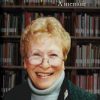 |
Solly’s Girl
A Memoir |
Collins, Ros
|
|
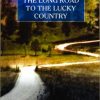 |
The Long road to the lucky country
Leaving a difficult past to face an unknown future. |
Cooper, Leo
|
|
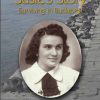 |
Susie’s story
Surviving in Budapest. |
Cymbalist, Susie
|
|
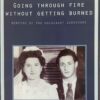 |
Going Through Fire without getting burnt
This is a memoir of two Holocaust survivors.
Danka grew up in a Hassidic household in Lvov, Poland, twice jumped off moving trains on transports to Belzec extermination camp, then sought refuge as a novice nun in a Ukraine convent. After liberation by the Russians, she joined the Aliyah Bet Movement as a Hashomer Hatzair leader, traveling from Krakow to Munich, Marseilles to travel by illegal boat to the Promised Land in 1946 where she was interned by the British in Atlit, a displaced person's camp near Haifa. There she met Heniek (Henry).
Henry grew up in a traditional Jewish home in Pabianice, Poland. In 1939 the Nazis invaded Poland. He survived the Ghettos of Pabianice and Lodz and the death and slave labor concentration camps in Auschwitz-Birkenau, then Ravensbrück, Ravensbrück and Wobblin, enduring winter marches and prolonged train transports. He was liberated by the Americans. He too traveled back home then via train through Czechoslovakia, Hungary, to Italy. From there he too traveled by illegal boat as part of the Aliyah Bet Movement to arrive in Haifa where he was arrested by the British and interned into Atlit in 1946, soon to meet Danka who arrived in the following month.
So began a courtship and a journey to re-establish a normal life and family, first in Israel 1946–1955 then in Melbourne, Australia, arriving by boat in Port Melbourne in 1955. The 30th March marks Danka and Henry’s 65th Wedding Anniversary. They have three sons, eight grandchildren and two great-grandchildren. It is a story of hope and triumph over adversity. |
Cyngler, Danka and Henry
|
|
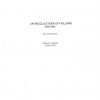 |
My Recollections of Holland
Only survivor of his family in Amsterdam |
de Haan, Jozeph
|
|
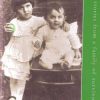 |
Books, tanks and radios : stories from a family of survivors
A collection of stories. Through the eyes of Eidelson's parents we witness the tumultuous events of the mid-twentieth century taking place in Belarussian villages, the Warsaw Ghetto, Siberian gulags, Soviet communes and the Russian battlefield. |
Eidelson, Meyer
|
|
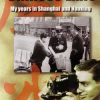 |
Chinese exile : my years in Shanghai and Nanking 1938 to 1947
Escaping Berlin in 1938 Horst “Peter” Eisfelder's family moves to Shanghai. Horst's meticulous eye for detail and wonderful photographs will take you on a fascinating journey of the Jewish community and its exotic surroundings. |
Eisfelder, Horst “Peter”
|
|
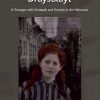 |
Chutzpe un Draystkayt
A teenager with chutzpah and tenacity in the Holocaust. |
Ekstein, Elka
|
|
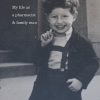 |
From There to Here
Vienna to Australia: My life as a pharmacist & family man |
Engel, Harry
|
|
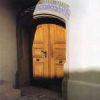 |
Choose life
An autobiography of Arnold, who's family lived in Bavaria for generations, alongside his Catholic neighbours, until the rise of the Nazi party changed everything. Arnold is an Auschwitz survivor who managed to reconstruct his life in Holland and Australia. |
Erlanger, Arnold
|
|
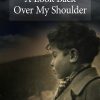 |
A look back over my shoulder
Surviving Theresienstadt |
Fabian, Garry
|
|
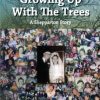 |
Growing up with the trees (Aaron Feiglin)
A Shepparton Story. |
Feiglin, Aaron
|
|
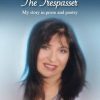 |
Multiple Sclerosis – the trespasser
My story in prose and poetry. |
Fischl, Erica
|
|
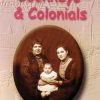 |
Cossacks, cockneys and colonials
A family saga, telling the story of Myra Fisher's family through the generations. |
Fisher, Myra
|
|
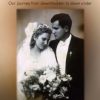 |
Interesting times
Our journey from downtrodden to down under. |
Fleiszig, Laszlo and Katalin
|
|
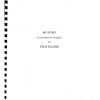 |
My story
From Bialystok to Brighton. |
Flicker, Felix
|
|
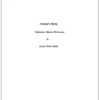 |
Ursula's Story
Bialystock, Siberia, Melbourne - by Ursula Flicker OAM |
Flicker, Ursula
|
|
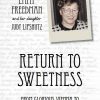 |
Return to sweetness
From glorious Vienna to bitter years in Siberia |
Freedman, Emmy & Lipshutz, Judy
|
|
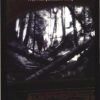 |
Reluctant soldier
A Jewish partisan's story |
Friedmann, Jakob
|
|
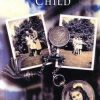 |
My mother’s child
An autobiography set in Traralgon and Melbourne. It is a story of out-of-home care and the effects of dislocation in childhood. |
Gardner, Helen
|
|
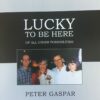 |
Lucky To Be Here
All along life's road, from the earliest days to the last, we accumulate experiences and absorb family stories, history, and culture. We become the sum of these and are forever a work in progress, unfinished to the end.
Peter Gaspar's rich, warm family memoir was inspired by regret that his parents were not able to pass on their own memories. “We are the poorer for it.”
Written for his children, Tim and Michaela, and his grandchildren, these moving chapters cover Peter's parents, his life in Bratislava from 1937–1949, leaving Europe, and establishing a fulfilling life in Australia.
Peter wanted this memoir to be built upon, so the history of the family will continue. |
Gaspar, Peter
|
|
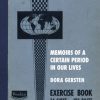 |
Memoirs of a certain period in our lives
מעמוארן פון א געוויסן צייט אפשניט אין אונזער לעבן |
Gersten, Dora
|
|
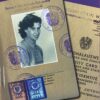 |
While I Was There and Now
This is an extraordinary story of courage and survival during the darkest days of World War II.
Susan Gimesy was just 15 when war came to her native Hungary, sweeping her into the horrors of the Holocaust. In her memoir, she recounts how she and other Jewish people struggled to survive those harrowing years.
After the war, she made a daring escape from Soviet-controlled Hungary, joining the countless refugees of postwar Europe. She eventually emigrated to Australia, beginning life as "a new Australian."
Despite being swept up by the tides of 20th-century history, Susan's life has been dramatic and colorful. Now living happily in Melbourne, she cherishes the loving circle of her family, including her four grandchildren. |
Gimesy, Susan
|
|
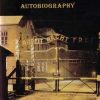 |
A Will to live
An autobiography detailing George's experiences during WW2, including the kindertransport, Gestapo prison and Auschwitz. This is an extraordinary story that captures George’s incredible life force and will to survive. |
Ginzburg, George
|
|
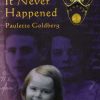 |
Just think it never happened
A fascinating story of survival. Celine promised her mother to look after her little sister Paullette, and she does. Together, they wander across a dangerous war-blighted landscape of France during WW2. |
Goldberg, Paulette
|
|
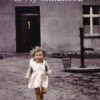 |
The Champions of my childhood
Three year old Naomi was extracted from the ghetto by her mother's nanny, who claimed the child as her own and hid her among her family in a country house. |
Goldrei, Naomi
|
|
 |
There will be a tomorrow
The story of Guta Goldstein's life as a Jewish child during the holocaust. |
Goldstein, Guta
|
|
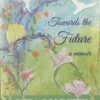 |
Towards the Future A Memoir
In this memoir, Guta Kopel recounts her life from the day of her Liberation, three weeks before the end of World War II. She was finally free after six years of deprivation and loss. Guta was 15 years old and all alone.
It is 1945, and Europe is in chaos with vast population movements and survivors of a ruthless war searching for places to call home. Traumatised Holocaust survivors became displaced persons, contemplating their future and trying to find a country that would accept the remnants of European Jewry.
After leaving Germany, Guta regained her youthful spirit among the friendly and hospitable Italian people of Florence. Although the life of a displaced person was difficult and transient, she enjoyed living in Italy. She learned Italian and English and made many good friends.
Four and a half long years later, she, her cousin Inka, Inka’s husband, and their two little girls were granted permission to emigrate to Australia. Settled in Melbourne, Guta met Ludek Goldstein, the man she was to marry.
Ludek was also a Holocaust survivor and a displaced person in Italy. His painful and distressing story through the war is movingly described by Guta.
It was in the safety of Melbourne that they embraced a normal life. |
Goldstein, Guta
|
|
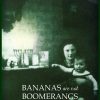 |
Bananas are not boomerangs
A child-survivor from Hamburg |
Gottlieb-Drucker, Mathel
|
|
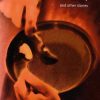 |
A Spoonful of soup and other stories
Gary Gray is a holocaust survivor who spent years in a concentration camp as a teenager. He began recording his war experiences in the form of short stories. They gained wide acclaim and have been published in various anthologies, magazines and newspapers. Now one book preserves these memorable stories for posterity. |
Gray, Gary
|
|
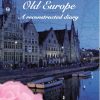 |
Young years in old Europe
A reconstructed diary. |
Grinberg, Sonia
|
|
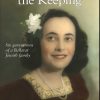 |
Memories for the keeping
Six generations of a Ballarat Jewish family. |
Grinblat, Estelle
|
|
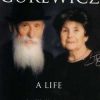 |
Nachum Zalman Gurewicz : a life : as told by his son Shmuel Gurewicz
Nachum Zalman Gurewicz , born in imperial Russia, migrated to the safety of Australia in 1950. He was instrumental in establishing Lubavitch Chassidism (Chabad) and fostering its development in Australia. |
Grinblat, Ian
|
|
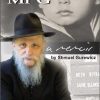 |
Mr. G.
A memoir |
Gurewicz, Shmuel
|
|
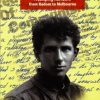 |
Such was life
An autobiography of Itzhak Gust, who rejected religious observance and embraced socialism, was involved in left-wing socialist politics in Melbourne as well as in the Soviet Union. |
Gust, Itzhak
|
|
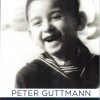 |
A Life journey
The blossoming of my family |
Guttman, Peter
|
|
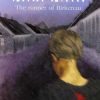 |
Lauferin : the runner of Birkenau
Luisa's story of courage and triumphant survival. As an eight year old girl in Warsaw during the Nazi occupation, her work as messenger in two concentration camps and her ‘wheeling and dealing’ ensured not only her own survival, but that of her mother too. |
Haberfeld, Luisa
|
|
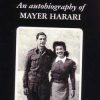 |
Second exodus : the autobiography of Mayer Harari
The autobiography of Mayer Harari |
Harari, Mayer
|
|
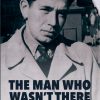 |
The man who wasn’t there
Searching for Gerhard |
Hearst, Susan
|
|
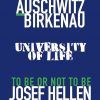 |
Auschwitz Birkenau – University of Life
To be or not to be |
Hellen, Josef
|
|
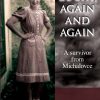 |
Lucky again and again
A survivor from Michalovce |
Hellinger, Elsa
|
|
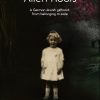 |
Alien roots
A German Jewish girlhood : from belonging to exile. |
Jacobs, Anne
|
|
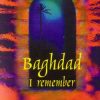 |
Baghdad I remember
A story of growing up in the midst of a large family in Basra and Baghdad in the first half of the 20th Century. |
Jawary, Sabiha
|
|
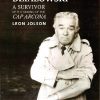 |
Dzialowski
A survivor of the sinking of the Cap Arcona |
Jolson, Leon
|
|
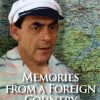 |
Memories from a foreign country
Growing up in Poland 1936-1958. |
Kahan, Danny
|
|
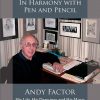 |
In harmony with pen and pencil: Andy Factor
Andy Factor: His Life, His Drawings and His Music |
Kaufman, Myra & Sacks, Elena
|
|
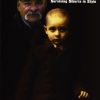 |
Tough kid
Surviving Siberia in style |
Kay, David as told to Ian Grinblat
|
|
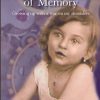 |
The Wheels of memory
Growing up with the war on my shoulders. |
Kempler, Sonia
|
|
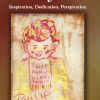 |
A trip down memory lane
Inspiration, Dedication, Perspiration |
Kleid, Phillip
|
|
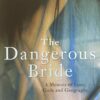 |
The Dangerous Bride
What do you do when your husband claims to be madly in love with you but doesn’t desire you sexually? When your therapist is more interested in opening an online sex-toy shop with your husband than in saving your marriage? Do you try yet another counsellor, get divorced, or settle for a sexless marriage?
Lee Kofman, rebellious daughter of ultra-Orthodox Jews, has always sought her own way. True to her Bohemian dream—where love can coexist with sexual freedom—she decided to experiment with an open marriage, despite the fact that her previous non-monogamous relationship ended in disaster.
Our cultural mores suggest that love without monogamy is impossible, but Lee hoped she could do better the second time around. She embarked on a personal exploration to find out whether she could save her marriage while being non-monogamous in an ethical way. For several months, she talked to swingers, polyamorists, cross-dressers, suburban families, artists, and migrants—in short, anyone who had ever been involved in an unconventional relationship.
Set during Lee’s first years in Australia, it is also the story of migration and an exploration of the eternal conflict between our desire for security and our yearning for foreign places—in love and elsewhere. The Dangerous Bride tells the story of her quest.
Kofman’s book is flushed with her fearless, lovely writing, her questing, curious energy, and the true, full feeling of a truly fulfilling memoir. She writes of non-monogamy and infatuation as if they’re what everyone should study, but the descriptions by a newcomer to Australia are another kind of love story here. Strikingly candid and candidly engrossing. I need Kofman to be my next new best friend.
— Kate Holden |
Kofman, Lee
|
|
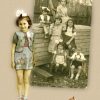 |
Tell it to the squirrels
A remarkable family, whose courage, love and solidarity guided them through the darkest of times. |
Kolt, Judy
|
|
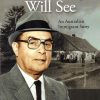 |
What the eye will see
: An Australian immigrant story. |
Komesaroff, William
|
|
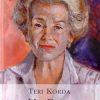 |
My dear Andrea and Andris
The story of Teri's survival, with her infant son, during WW2. Although this book is about grim times, the reader will find it anything but grim reading. It is an adventure story and a love story, peopled by a fascinating array of larger-than-life characters. |
Korda, Teri
|
|
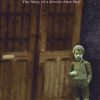 |
Saviours : the story of a Jewish altar boy
Smuggled into Belgium and placed in a children's home, Henri is pressured to convert to Catholicism. This vividly told story has two main themes: the war experiences of one young boy and his continuing struggle to define his identity. |
Korn, Henri
|
|
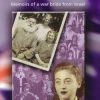 |
Keeping the promise : memoirs of a war bride from Israel
born into a pioneering Zionist family and grew up in Eretz-Yisrael in the late twenties and thirties. After marrying an Australian soldier and moving to Melbourne, Mena dedicated her life in Melbourne to Jewish education. |
Kozminsky-Meyerowitz, Mena
|
|
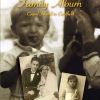 |
Snippets from my family album
Csepel Island to Caulfield. |
Landau, Alice
|
|
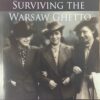 |
Surviving the Warsaw Ghetto
Helen Lawner, survivor of the Warsaw Ghetto during World War II, gives a first-hand account of the events she lived through, her experiences, and her many losses.
Building on her mother's tragic account, Dr. Miriam Tisher, a Melbourne clinical psychologist and family therapist, explores her own responses to these experiences and reflects on her mother's feelings during and after these horrific events. Miriam sensitively interweaves Helen's story and later life in Australia with her own second-generation childhood memories. Her children, the third generation, share a dialogue about their own memories of their grandmother.
This book is a unique contribution to the archive of Holocaust personal accounts, as well as a loving celebration of the courage and strength of one woman. |
Lawner, Helen
|
|
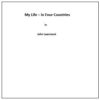 |
Learmont, John
|
||
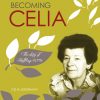 |
Becoming Celia
The story of Häftling 46996. |
Lederman, Celia
|
|
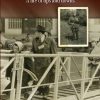 |
I had nothing to lose
A life of ups and downs. |
Lee, Des (Lévi, Dezsö)
|
|
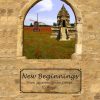 |
New beginnings
From Japanese prison camps to Aliyah |
Lehrer, Shoshanna
|
|
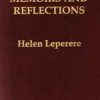 |
Memoirs and reflections
With Humanity, passion and wry humour Helen tells the story of her survival, after being take from her family by the SS at the age of fourteen. |
Leperere, Helen
|
|
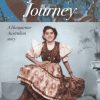 |
My heart’s journey
A Hungarian-Australian story |
Levy, Magda
|
|
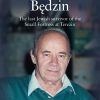 |
A Boy from Bedzin
The last Jewish survivor of the small fortress at Terezin. |
Lewkowicz, Berek
|
|
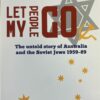 |
Let My People Go
"Sam Lipski is a fine journalist. He has joined Suzanne Rutland to write about Australia and the Soviet Jews 1959–89. As Opposition Leader in the 1980s, I strongly supported the efforts of the (then) Australian Government to provide freedom and a future life for many Jews in the Soviet Union. It is an inspiring and fascinating story which reflected well on the common humanity of Australians."
— The Hon. John Howard AC, Prime Minister of Australia, 1996–2007
"Let My People Go is a compelling and beautifully written account of the Australian contribution to the release of Soviet Jewry. The work opens a window on the role played by Australian parliamentarians and Jewish community leaders over three decades from 1959, most notably the tireless work of Isi Leibler, and also some revealing insights into the personal involvement of Lipski himself. Australians can be proud of this story."
— Hon. Mark Dreyfus QC MP, 2013
"The struggle for the freedom of Soviet Jewry was one of the most powerful displays of strength and solidarity by the world Jewish community. The campaign not only changed the fate of the Jewish people; it brought down the Iron Curtain and impacted upon the entire world. Yet even those intimately familiar with the struggle will be surprised to discover in Let My People Go, the story by Sam Lipski and Suzanne Rutland, how the Australian Jewish community and its leaders were among the campaign's initiators, and how they saw it through to its successful conclusion. This is a unique testament to how a small group can play a big role in history."
— Natan Sharansky, Chairman, Jewish Agency for Israel, Jerusalem, Prisoner of Zion |
Lipski, Sam and Rutland, Suzanne D
|
|
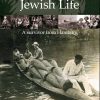 |
A 20th century Jewish life
A survivor from Hamburg |
Lissauer, Mark
|
|
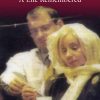 |
Blessings and curses
A life remembered. |
Loven, Shoshana
|
|
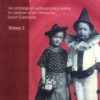 |
Memory Guide My Hand - Volume 2 (Makor Publishing)
Makor Publishing |
Makor Publishing
|
|
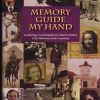 |
Memory guide my hand – Volume 3 (Makor Publishing)
This diverse collection of thirty autobiographical stories from the Melbourne Jewish community adds a human face to the history books. |
Makor Publishing
|
|
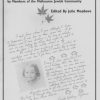 |
Memory Guide My Hand - Volume 1 (Makor Publishing)
An anthology of autobiographical writings by members of the Melbourne Jewish community, 1998 |
Makor Publishing
|
|
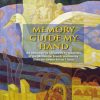 |
“Memory Guide My Hand”: Volume 4 (Makor Publishing)
An Anthology of life stories by members of the Melbourne Jewish Community from the former Soviet Union. |
Makor Publishing
|
|
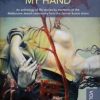 |
Memory Guide My Hand” : Volume 5 (Makor Publishing)
The 2nd anthology of life stories by members of the Melbourne Jewish Community from the former Soviet Union. |
Makor Publishing
|
|
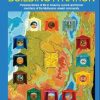 |
Memory guide my hand” : Volume 6 (Makor Publishing)
Personal stories of life in Israel by current and former members of the Melbourne Jewish community. |
Makor Publishing
|
|
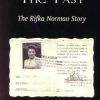 |
Echoes from the past : the Rifka Norman story
The story of Rifka Norman and her journey, following her father out of Vilno ghetto and into the unknown. |
Mandelbaum, Rae
|
|
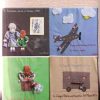 |
A Patchwork life
Eva and her family, who tried to escape the Nazis in Vienna, are sent to Novosibirsk, to spent six years in the Siberian Gulag. |
Marks, Eva
|
|
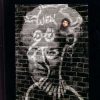 |
Searching for yesterday : a photographic essay about my mother, a Holocaust survivor
A story of courage in the face of despair and of hope where hope is all but gone. A photographic essay compiled with love by Helen Max. |
Max, Helen
|
|
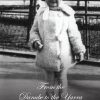 |
From the Danube to the Yarra
Trude’s story is about far more than her war years |
Mayer Aldor, Gertrude
|
|
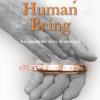 |
A Lucky human being
An incredible story of survival. |
Mayer, Hania
|
|
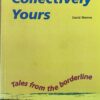 |
Collectively Yours
On a hostile border surrounded by sand dunes, the members of a young kibbutz are building a future, convinced that their small, isolated community embodies the future for all of civilized society.
Collectively Yours tells the personal stories of lovers, mothers, idealists, and revolutionaries, as their lives are shaped by the unique society they are trying to create.
In the heat and isolation of the deserted borderline, the strains of collective living are heightened by the political stalemates surrounding the Suez Crisis and the Six-Day War. Personal conflict, social pressure, and the tense security situation combine to reveal the strengths and frailties of human nature.
Narrated with poignancy and humour, and enlivened with cartoons from kibbutz magazines, these stories tell of a time when young people did not just dream but put their dreams into action, believing they could make the world a better place. |
Merron, David
|
|
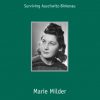 |
Hard memories
Surviving Auschwitz-Birkenau. |
Milder, Marie
|
|
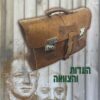 |
Mittelberg, David
|
||
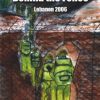 |
Behind the fence
Lebanon 2006 |
Morris, Danny
|
|
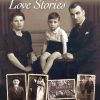 |
Carlton and other love stories
An account of a rich and vibrant era in the history of Melbourne’s Jewish community. |
Morris, Moshe
|
|
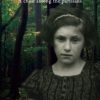 |
A Life reclaimed
A child among the partisans. |
Olenski, Luba
|
|
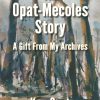 |
The Opat-Mecoles story
A gift from my archives. |
Opat, Ken
|
|
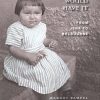 |
As chance would have it
From Jena to Melbourne |
Pampel, Margot with her daughter Felicity Zwarf
|
|
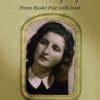 |
This is my life
From Ruske Pole with love. |
Parush, Eva
|
|
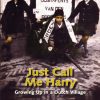 |
Just call me Harry
Growing up in a Dutch village. |
Philips, Hartog (Harry)
|
|
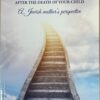 |
After the Death of Your Child
"Cynthia's ability to offer and share with the reader insight into her own personal story, her internal struggles and emotions while at the same time providing perspective, knowledge and resources on this painful topic is certainly unique. I would strongly recommend communal rabbis to read this book and to have it available to share with their congregants if ever needed."
— Rabbi Daniel Rabin, Rabbi South Caulfield Hebrew Congregation
"This is an incredibly powerful resource for parents dealing with the unthinkable loss of their child, as well as anyone supporting others dealing with loss."
— Rabbi Allison Conyer, Etz Chayim Progressive Synagogue
"It is rare to find a book written by a bereaved parent that covers the theoretical principles of grief, whilst maintaining the warmth and integrity of the writer's personal story within the context of the Jewish religion. I would happily give the book to my clients to read."
— Karen Ludski, Grief Counsellor
"Cynthia has used her skills and motivation to bring the wisdom garnered from this group context, along with the experience of her own painful loss, to bear in this new book which addresses many of the common fears and issues confronted by bereaved parents. What makes this book remarkable is that it directly addresses the virtual absence of books and literature which speak directly to the bereaved Jewish parent."
— Christopher Hall, CEO, Australian Centre for Grief and Bereavement
"An engaging, informative and touching book. Up-to-date and very accessible in style of writing and short chapters with itemised sub-sections. Great to read about and get a sense of Danny, too."
— Andrew McNess, CEO, The Compassionate Friends of Victoria |
Pollak, Cynthia
|
|
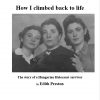 |
How I climbed back to life
The story of a Hungarian Holocaust survivor |
Preston, Edith
|
|
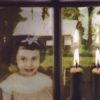 |
No locked doors : Jewish life in Shepparton
Shirley gives a description of her life in the close-knit Jewish community of Shepparton which is full of historic interest. |
Randles, Shirley
|
|
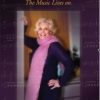 |
Spared for a purpose
The music lives on. |
Reichman, Mara
|
|
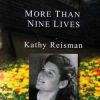 |
More than nine lives
The story of Kathy's miraculous escapes and extraordinary courage, surviving Auschwitz, migrating to Israel to join the Hagannah and finally migrating to Australia with her family. |
Reisman, Kathy
|
|
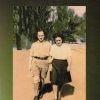 |
Stepping into life
his book consists of parallel stories by a husband and wife, describing their lives in Poland, their survival during the holocaust and the 'new beginning' in Melbourne. |
Robin, Moshe and Stefa
|
|
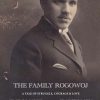 |
The Family Rogowoj
A tale of struggle, courage and love |
Rogowoj, Shaul
|
|
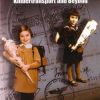 |
Serry and me : Kindertransport and beyond
A memoir of a child who was part of the Kindertransport - seperated from her family and sent to England during WW2 , to live with an English family. |
Rosenberg, Elfie
|
|
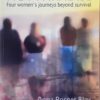 |
Not Paradise
"How do you collect the shattered pieces of a broken mirror and put them back together, without the reflections of your own fractured face leering back at you? How can you handle these jagged fragments and not suffer deep cuts that bleed?"
Anna Rosner Blay, author of Sister, Sister (shortlisted for the Age Book of the Year and the New South Wales Premier's Awards), presents the moving and revealing stories of four women who survived the horrors of the Holocaust and strove to rebuild their shattered lives in Australia, a safe and sun-filled land on the opposite side of the globe.
Blay explores their remarkable tenacity to hold on to life and move forward. She interweaves their narratives with her own journey of resilience and healing after the despair of a broken marriage.
Through this compelling inquiry, Blay examines how we understand the past, find the courage to endure suffering and hardship, and ultimately discover a path forward—beyond trauma—to a life filled with hope and fulfillment. |
Rosner Blay, Anna
|
|
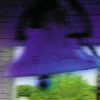 |
The Bells tolls for thee and other short stories
Maurie Rosner has created a set of nostalgic stories that bring to life the Australia of the ‘40s and ‘50s. They tell of a young Jewish boy who is eager to become the great Aussie bloke. |
Rosner, Maurie
|
|
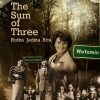 |
The Sum of three
Rutka, Jadzia, Rita |
Ross, Rita
|
|
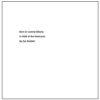 |
Rotblat, Zev
|
||
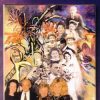 |
An Intricate collage
A memoir describing the German Jewish experience prior to WW2 and her life after she escaped to Australia, alone, aged nineteen. |
Roth, Marianne
|
|
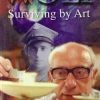 |
Wolf : surviving by art
After escaping from Poland to Russia in 1939, Wolf Rubin managed to support himself and survive using his artistic talent. |
Rubin, Wolf
|
|
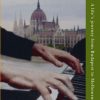 |
Stormy weather
She survived the war in the city, living through horror, fear and hunger. |
Sandy, Kitty
|
|
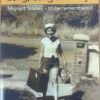 |
Long, Long Journeys
In her preface to this collection, Kitty Sandy invites the reader to “make yourself comfortable and listen to some real-life stories” of New Australians, as migrants were known sixty years ago. Each one of these twenty-five stories rings with energy, friendship, and compassion. Not one of them fails. It is a collection to delight any reader.
Kitty Sandy arrived in Australia from Hungary in 1950. She has presented a classical music program on 3MBS FM since 1991. |
Sandy, Kitty
|
|
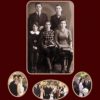 |
Pola’s Story
She survives Siberia but cannot find her husband. |
Schimmel, Marilyn with her sisters, Annette and Sharon
|
|
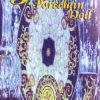 |
The Porcelain Doll
An autobiography by Vera Schreiber, describing her childhood in Bergen- Belsen and her life after being released from the infamous death camp. |
Schreiber, Vera
|
|
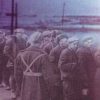 |
Under red skies : dreams and reality
The author and his wife, young communist idealists, crossed illegally into the Soviet Union. Instead of the expected 'workers paradise' they face prison camps and exile. |
Schwartz, Schmul
|
|
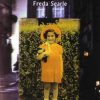 |
Memory’s wings and apron strings
A Melbourne story that brings to life the Carlton of the thirties and forties through the eyes of an Australian Jewish girl. |
Searle, Freda
|
|
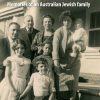 |
Made in Australia
Memories of an Australian Jewish family |
Segal, Miriam
|
|
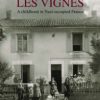 |
Escape to Les Vignes
A childhood in Nazi-occupied France. |
Sharpe, Annita
|
|
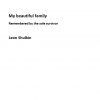 |
My Beautiful Family
Remembered by the sole survivor |
Shulkin, Leon
|
|
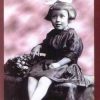 |
My story
The story of Lily Skall and her family escaping the Nazi occupation from Vienna to Shanghai and eventually to Melbourne. |
Skall, Lily
|
|
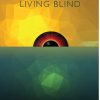 |
The Colours of Life
Living blind |
Skurnik, Lilly
|
|
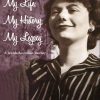 |
Solomon, Geulah OAM : my life, my history, my legacy
A Jewish-Australian Journey |
Solomon, Geulah OAM
|
|
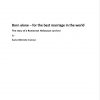 |
Born alone - for the best marriage in the world
The story of a Romanian Holocaust survivor |
Sommer, Rachel Michelle
|
|
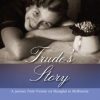 |
Trude’s story
A journey from Vienna via Shanghai to Melbourne |
Speiser, Gertrude
|
|
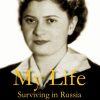 |
My life
Surviving in Russia. |
Steinbok, Fela
|
|
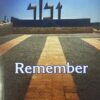 |
Remember
Fela Steinbok was born in Sosnowiec, Poland. She had a happy childhood and youth and was an active member of Betar and a passionate Zionist.
In 1939, her world fell apart with the onset of WWII. Arriving in Australia in 1950, having survived the war in Russia, she became a committee member of the Zaglembie Landsmanshaft—a society of Holocaust survivors from the Zaglembie district in Poland.
Many such societies emerged after the war worldwide, and through them, there was a revival of Jewish culture and Jewish life. The Zaglembie Landsmanshaft's activities included many fundraising events for the JNF and literary events. But most important was, and still is, the commemorative service held in memory of the Zaglembie Holocaust victims. Fela has been an active participant to this day, always reading a poem or making a heartfelt and thought-provoking speech.
This is a collection of her speeches and poems from the past thirty-six years, which she has formed into a memorial book dedicated to the Zaglembie Jewry. Some are in English, and some in transliteration from Yiddish. |
Steinbok, Fela
|
|
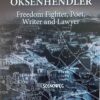 |
Jacob Oksengendler
Fela was born in Sosnowiec on October 13, 1916, one of seven children in a happy, loving family. Her world was shattered by the Nazi onslaught on Sosnowiec. Her deepest and most enduring anguish, which haunts her even now at over 100 years old, is not knowing the journey or whereabouts of her eldest brother, Jacob, during and after the war. She passionately loved, respected, and admired him, and this book is dedicated to his memory. |
Steinbok, Fela
|
|
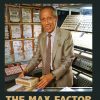 |
The Max Factor
My Life as a stamp dealer |
Stern, Max
|
|
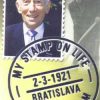 |
My stamp on life
Max Stern lost his family in Auschwitz, survived Lichtenrade concentration camp and went back to Czechoslovakia to regain his stamp dealing business. |
Stern, Max AM
|
|
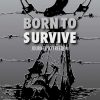 |
Born to survive
A long journey to freedom |
Stone, Nina
|
|
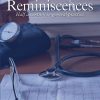 |
Reminiscences
Half a century in general practice. |
Szego, Eva
|
|
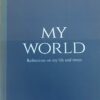 |
My World Reflections on My Life and Times
Ron Taft wrote many articles for academic journals during his career as a leading psychologist and academic. He has also written essays on a range of topics, including the history of members of his family. Now he has filled in the missing link — the story of his own life.
Beginning with “My Life,” his story has evolved into “My World,” with moving biographical sketches of three of the most important people in his life — his wife Ellen, his mother Olya, and his father Grisha — as well as a number of shorter vignettes about his life. Spanning ninety-five years, his story not only records a well-lived life but also provides a social history of the times. |
Taft, Ron
|
|
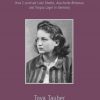 |
Out of the ashes
How I survived Lodz Ghetto, Auschwitz-Birkenau and Torgau Lager in Germany. |
Tauber, Tova
|
|
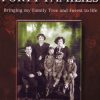 |
The First of forty families : bringing my tree and forest to life (Tess Schwarz / nee Tessie Hain)
Escaping from the pogroms in Russia in the early 1900s, Tess Schwarz’s great aunt and uncle settled in Melbourne and were responsible for bringing forty related families to Melbourne, the first being author’s parents. |
Tess Schwarz
|
|
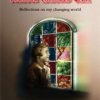 |
Through coloured glass
Reflections on my changing world. |
Urbach, Eva
|
|
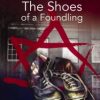 |
The Shoes of a foundling
The story of a lost and entangled youth. |
van Rijsdijk, Mink
|
|
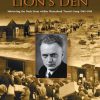 |
In the lion’s den
Subverting the Nazis from within Westerbork Transit Camp 1942–1945. |
Vanas, Adrian
|
|
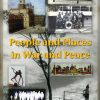 |
People and places in war and peace
Bridge-building across human divides. |
Wagowska, Halina
|
|
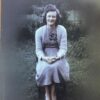 |
Put It On The Slate
Shirley Ward was eight years old when her father died, leaving her mother destitute and with five children to raise. It was 1939. She writes:
The few sticks of furniture Mum had were sold, and the money paid for train fares to Warragul so that we could go to live with Grandma, Florrie Emmeline O'Hare Olsen, Mum's mother. What a sad, pitiful sight we must have looked as the six of us stood on Spencer Street Station! A woman came up and gave Mum a bag of buns. She must have felt very sorry for us. On the train, Mum cried, so we all cried too.
The reader will cry too, as well as chuckle and laugh, but altogether enjoy this true story full of larger-than-life characters, skeletons in the cupboard revealed, true romance, and a rags-to-riches end. All recounted in Shirley's inimitable style, which is both vivid and unsentimental. |
Ward, Shirley
|
|
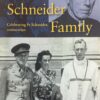 |
The Schneider Family
One hundred years, a centenary, is a significant milestone—a time to reflect and remember, a time for a family to take stock as it looks to the future.
Fr Geoffrey Schneider SJ's centenary on 23 December 2012 was preceded by his acknowledgment in the Guinness Book of Records as the world's oldest active teacher. His nephew, Paul Schneider, commissioned this work as a tribute to a remarkable man.
This wide-ranging family memoir embraces the stories of Fr Schneider, his brother Victor Schneider, and sister-in-law Marie Schneider, their children, grandchildren, and great-grandchildren, along with many ancestors and relations.
Like so many Australian stories, this is one of emigration: the Schneiders from Switzerland, the Heatleys and McIntyres from Scotland. Interwoven with their stories are accounts of wars, land settlement, and, in a small way, the beginnings of the Australian wine industry—an early vineyard in the Melbourne suburb of Surrey Hills.
The heirs to that rich history are the younger generation of Schneiders, who tell their own stories of how they are taking their place in the world. |
Willis, Elizabeth and Schneider, Kristin
|
|
 |
Wirth, Miklos & Lilian
|
||
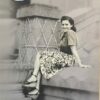 |
Surviving
It took years to unlock Blanka's story because she spent so many years trying to forget.
As a young girl during the war, she survived outside the concentration camps by passing as non-Jewish. Blanka had never spoken about her experiences until she agreed to talk with Barbara, who recorded and then wrote her story in her own words.
Blanka survived because her parents insisted on it. "Somebody has to survive," they told her, "somebody has to tell the story."
Surviving is dedicated to the memory of Blanka's parents and to their grandchildren, great-grandchildren, and great-great-grandchildren, who thrive in Australia because of Blanka's courage and determination. |
Wise, Blanka and Kamler Levine, Barbara
|
|
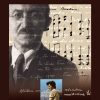 |
A Ballad by Johannes Brahms
A journey to understand a childhood in Vienna shattered by Nazism
*If we are out of stock, please email us at info@ljla.org.au as we may have second-hand copies or may be able to order more from the author
|
Wright, Suzanne
|
|
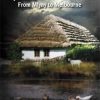 |
My Battle for Survival : from Mlyny to Melbourne
The story of Godel Wroby's survival. From rural Poland, through the horrors of Lodz Ghetto, Buchenwald, Schlieben and Theresienstadt to Melbourne. |
Wroby, Godel
|
|
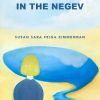 |
Like Streams in the Negev
The author’s lyrical recollection of childhood and teenage years accompanied by family history. |
Zimmerman, Susan Sara Feiga
|
|
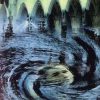 |
Swimming under water
saga of their survival in the Second World War with false identity papers. A beautifully-written tribute to the courage of one family and the humanity of the people who helped them |
Zylberman, Halina
|
